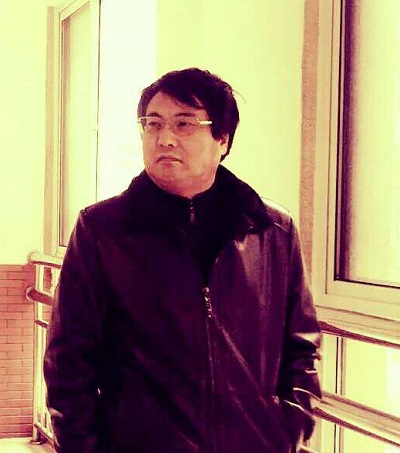Zhu Xinjun
Zhu Xinjun
Personal Profile
Zhu Xinjun, whose given name "Xin" signifies a gentleman—gentle as spring in speech, noble as jade in conduct. His courtesy name is "Jingtang," and his literary pseudonym is "Wen Ru Songhua" (Writing Like Pine Blossoms). He received the auspicious gift of "Great Good Karma" bestowed upon him in a dream by Guanyin Bodhisattva. He has comprehended the true essence of calligraphy: writing the blossoms of the soul, with method emerging from within the characters. He upholds the principle that calligraphy must evolve with the times: writing for the era, writing for events, writing for history, writing for poetry, and writing for humanity.Born in 1967, his appearance strikingly resembles Mao Zedong, and he specializes in imitating Mao’s calligraphic style, achieving remarkable success.
Chairman Mao’s cursive script is grand and majestic, unrestrained yet vigorous, free-spirited and heroic, brimming with distinctive character—a monumental milestone in the history of calligraphy. Many people today study Mao’s calligraphic techniques; while they may achieve outward resemblance, they lack the visionary, world-embracing breadth of mind possessed by the great leader. Thus, even the most skillful imitation cannot surpass Mao’s original works. Moreover, Chairman Mao was profoundly erudite, having read extensively across all fields—an intellectual depth naturally reflected in his calligraphy, transcending conventional rules without violating them. Therefore, when studying Mao’s style, Teacher Zhu Xinjun cultivates both inner wisdom and outer skill, enhancing his cultural literacy and engaging broadly in literature, performance, poetry, and song. In calligraphy, he takes Mao’s style as his foundation while infusing his own expressive brushwork, developing a unique personal style widely acclaimed by professionals.
Currently teaching courses on China’s fine traditional culture and calligraphy. Nationally Certified First-Class Calligrapher. Since beginning his career, he has successively received honors including Outstanding Teacher, Outstanding Class Advisor, Outstanding Educational Worker, Advanced Individual in Financial Management, Advanced Individual in Infrastructure Project Management, and Advanced Individual in Campus Safety Culture Research and Management in Shandong Province.
His personal papers, such as “On Teachers’ Mental Wisdom” and “Preliminary Discussion on Mobile Classroom Teaching,” have won First Prize in the “China Modern Education Theory and Practice Outstanding Teaching and Research Paper Competition,” and were selected as opening works for inclusion in the “China Modern Education Theory and Practice Guidance Series.”
His paper “Reflections on Classroom Learning and Thinking of ‘Ode to the Yellow River’ from the Perspective of ‘Poetry Inspires Passion, Passion Cultivates Wisdom’” won First Prize in the 19th Shandong Provincial “Top 100” Teaching and Research Paper Competition.
Nearly 20 literary works including poems such as “Ode to Supervision,” “Mother’s Love as Vast as the Sea,” and “Classroom Ode” have been published in “Yellow River Estuary Poetry Garden.” In his professional practice, he has compiled his own manuscripts “Random Thoughts from Observing Classes” and “Beautiful Experiments, Safety with Heart,” totaling nearly 800,000 Chinese characters.
The Chinese Dream blooms in myriad colors; the New Era gallops forward with ten thousand horses. Mental wisdom determines one’s life. Upholding the belief, “Confident to live two hundred years, I shall surely strike the waters for three thousand miles,” and holding fast to this dream—this is Zhu Xinjun’s eternal pursuit in life.
para-title
TAG:
Zhu Xinjun

 中文
中文  en
en 
